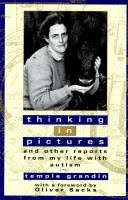New Report Summons a Call to Make Skills
Everyone’s Business
Azusa Library, The Literacy Update: March/April
2015
The U.S. Department of
Education Office of Career, Technical and Adult Education (OCTAE) released
a new report in February: Making
Skills Everyone’s Business: A Call to Transform Adult Learning in the United
States. Its authors’ review of a convergence of data, analysis, and policy
highlight just how much skills matter – to individuals, their families and
communities, and to the economy overall.
The Literacy
Program at the Azusa City Library answers that call and invites you to join
with us. Here are a few highlights from
the report that emphasize why we do what we do.
In the United States 36 million adults
have low skills, scoring below Level 2 on the most recent international
literacy assessment. Further, the skill
levels of U.S. adults have remained stagnant over two decades. The report
details who has low skills and who would benefit from gaining higher
skills. For instance, we find that
two-thirds of the low-skilled population (nearly 24 million people) are
employed. With slow projected growth in the labor force, that means that most
of tomorrow’s workforce already is
working today. Low-skilled workers tend to be employed in retail and
auto mechanics, hospitality and food service, health and social work,
manufacturing, and construction.
How can individuals benefit?
Higher skills lead to higher wages.
Increasing parents’ skill can improve
education outcomes for their children – “double duty” dollars is what some people call it.
Higher-skilled adults are healthier, with
implications for their ability to work, parent, and participate in their
communities.
How can business and industry benefit?
Increasing adult skills increases
productivity.
Because higher-skilled workers are also
likely to be healthier, helping adults
improve their skills indirectly raises productivity.
Increasing skills expands access to
better employment and better-paying jobs, creating new customers for products
and services.
How can the community benefit?
Raising adult skills could lift community
educational attainment for the next generation as well.
States with better-educated workforces
have higher economic growth and higher wages.
Raising adult skills could potentially
save communities substantial amounts in healthcare costs.
Integrating immigrants may benefit communities
economically.
Raising adult skills could result in more
civic engagement in communities.


















